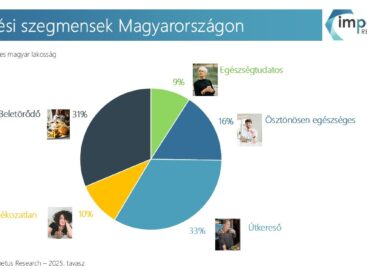Cholesterol levels reconsidered: medication, microsterols, interval training
Cholesterol is a silent indicator of health. Over the years, we may not even pay attention to it until a routine blood test draws our attention to it: our cholesterol levels have increased. That’s when we realize that we need to take action – but now we know, not necessarily with medication right away. Elevated cholesterol is a warning that prompts us to investigate, but a small increase is not necessarily a cause for alarm.

LDL cholesterol is not an enemy in itself, it plays an essential role in the functioning of the body. It is one of the basic building blocks for maintaining brain function. The problem begins when high LDL cholesterol is accompanied by reduced vascular wall elasticity, high blood pressure and elevated triglyceride levels, and an inflammatory state is present, because then the elasticity of the vascular walls is more easily reduced and the inflammatory processes can even become permanent. This increases the risk of atherosclerosis, and the individual risk points accumulate and reinforce each other, threatening each other.
In order to assess the condition of our body, it is now worth measuring the ApoB value, which may shade the medical treatment plans developed based on the values of traditional lipid panels, since low levels of ApoB may indicate that the sLDL particles that cause endothelial dysfunction are not yet present in risky quantities. In other words, a slightly elevated cholesterol level in itself does not necessarily mean immediate danger. Especially if a simple, semiquantitative vascular wall elasticity test or a more detailed arteriographic examination confirms that we do not have plaque deposits.
However, when plaques have already formed, it is worth paying attention to reducing cholesterol levels and preventing further deposits, increasing the health and elasticity of the blood vessels. At the same time, it is advisable to initiate nutritional changes that help improve the lipid balance and the health of the cardiovascular system. This can be supported by an exercise program and sleep optimization, and in most cases, stress management techniques should also be used.
Related news
Cold drink, hot consequences: iced refreshments can cause heart rhythm disturbances
It may sound bizarre at first, but it’s scientifically proven:…
Read more >A third of the population is still looking for ways to eat healthier, and only one in four Hungarians eats consciously
Nutrition is not only the foundation of proper bodily functions,…
Read more >A cup of coffee for a long, healthy life? 30 years of research has provided the answer
Coffee in the morning is not only a wake-up call…
Read more >Related news
GKI analysis: Why do Hungarian households live more poorly than anyone else in the EU?
Imagine that the residents of every EU country shop in…
Read more >KSH: industrial producer prices decreased by 0.7 percent in May 2025 compared to the previous month, and increased by an average of 6.9 percent compared to a year earlier
In May 2025, industrial producer prices were 6.9 percent higher…
Read more >Consumption drives the economy
According to the latest forecast by the Balance Institute, the…
Read more >






